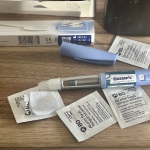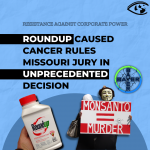USA: Breast Cancer Activists Protest Partnership Between GM and Cancer Institute
Appalled by the announcement of a collaboration between the National Cancer Institute (NCI) and General Motors (GM) on a breast cancer drug trial, activists today criticized the project as a profit-seeking move for the automobile corporation and the pharmaceutical companies involved.
"This partnership is not only an attempt by the government to boost enrollment in an extremely misguided research effort, but also an attempt by a corporate polluter to improve its image," says Barbara Brenner, executive director of Breast Cancer Action, a national breast cancer advocacy organization based in San Francisco.
"For years General Motors has tried to convince the public that it is a champion in the fight against breast cancer, even though its products have been implicated in the development of the disease," says Brenner. "Now GM is joining forces with a federal agency to promote a trial that will merely boost profits for two pharmaceutical companies, and may result in considerable harm to GM's female employees."
GM and the NCI are inviting nearly 140,000 female GM employees age 35 and older (both active and retired) to have their risk of developing breast cancer assessed through the federal agency. Employees found to be at higher-than-average risk will then be invited to consider participating in a breast cancer drug study known as the STAR trial (Study of Tamoxifen and Raloxifene), which randomly assigns healthy women to take daily doses of either of the two drugs for five years. No participants are given a placebo.
"The trial is designed to test one potentially dangerous drug against another, without evaluating whether either is better than doing nothing in terms of risks and benefits," says Brenner. "The result will be information that is useless to everyone except the drug companies involved, which will then be used to market powerful drugs to healthy women."
The NCI launched the trial almost two years ago with the hope of enrolling 22,000 women but has had trouble recruiting eligible participants. The drugs being studied are already in use: Tamoxifen is used to treat breast cancer and has been approved for use in some healthy women despite its considerable dangers, which include endometrial cancer and potentially fatal blood clots. Raloxifene is an osteoporosis drug that has been touted for reducing the risk of breast cancer, though it has not been approved for this use.
The fact that General Motors is a corporate partner in the federal agency's outreach effort is particularly appalling, Brenner notes. "A recent study linked the output of internal combustion engines with increased breast cancer risk. When it comes to the cancer problem, GM and the NCI are both putting profits before people."
- 122 Pharmaceuticals



